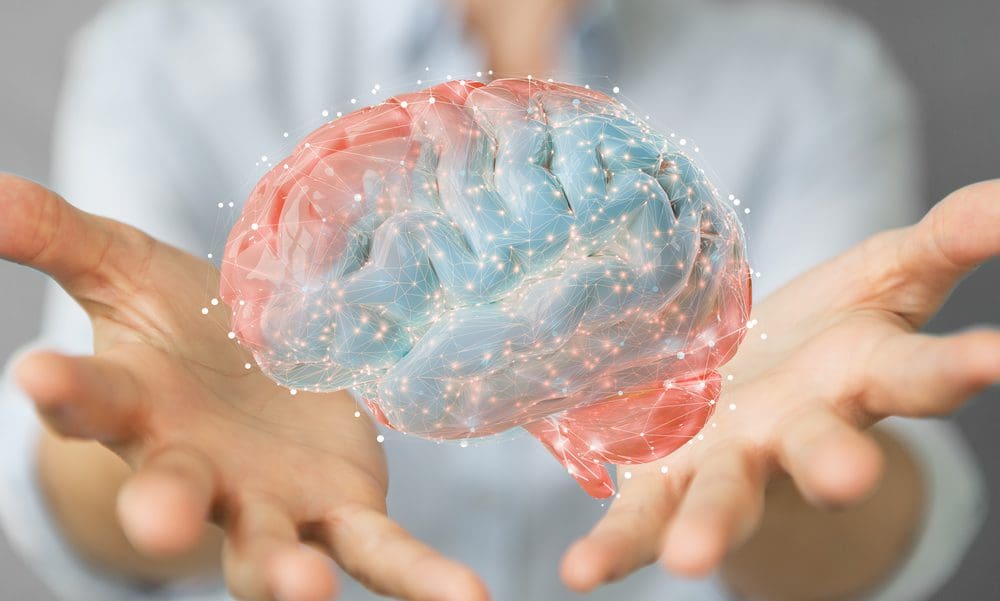Full Disclosure: Clicking on these links could mean a tiny commission for me, at no extra cost to you.
Traumatic Brain Injury (TBI) is a complex and often debilitating condition that requires specialized care and expertise for accurate diagnosis, effective treatment, and ongoing management. Traumatic Brain Injury labs play a crucial role in advancing our understanding of TBI, providing a range of services aimed at improving patient outcomes, conducting research, and developing innovative therapies. In this blog, we’ll delve into the traumatic brain injuries, the impact on mental health, the various services offered in traumatic brain injury labs and their significance in addressing this critical health issue.
What are Traumatic Brain Injuries?
Traumatic brain injuries (TBIs) are injuries to the brain caused by an external force, such as a blow or jolt to the head, which disrupts the normal function of the brain. They can range from mild (commonly known as concussions) to severe, depending on the extent of damage to the brain. Here’s a breakdown of the different aspects of TBIs:
Types of TBI
- Concussion: The most common type of TBI, often considered mild, though its effects can be serious.
- Contusion: A bruise (bleeding) on the brain caused by a direct impact to the head.
- Diffuse Axonal Injury: Injury caused by the shaking or strong rotation of the head, as seen in car accidents or from being shaken violently.
- Penetration Injury: Occurs when an object, like a bullet or shard, pierces the skull and damages brain tissue.
Causes
- Falls: Especially common in children and the elderly.
- Vehicle-related Collisions: Car, motorcycle, or bicycle accidents.
- Violence: Gunshot wounds, domestic violence, child abuse, or assaults.
- Sports Injuries: From contact sports like football, boxing, hockey, or soccer.
- Explosive Blasts and Other Combat Injuries: Common in military personnel.
Symptoms
Symptoms of a TBI can vary widely depending on the severity and location of the injury, and can include:
- Physical Symptoms: Headache, nausea, fatigue, speech problems, dizziness, loss of coordination, and sensory problems like blurred vision or ringing in the ears.
- Cognitive Symptoms: Confusion, disorientation, difficulty concentrating, and memory loss.
- Emotional Symptoms: Mood swings, anxiety, depression, and irritability.
The Impacts of Traumatic Brain Injuries on Mental Health
Traumatic brain injury (TBI) can have significant impacts on mental health. Following a TBI, individuals might experience a range of psychological effects, which can include emotional, cognitive, and behavioral changes. Here are some key connections between TBI and mental health:
- Emotional Changes: After a TBI, individuals might experience mood swings, irritability, and feelings of frustration. Depression and anxiety are also common, partly due to the changes in brain function and the emotional impact of adjusting to life post-injury.
- Cognitive Impairment: TBI can lead to problems with memory, attention, and executive functions. These cognitive challenges can exacerbate stress and anxiety, complicate treatment of mental health disorders, and make it difficult for individuals to manage their daily activities.
- Behavioral Changes: Some people with TBI exhibit changes in behavior such as impulsivity, aggression, or a lack of inhibition. These changes can strain relationships and social interactions, further affecting the individual’s mental health.
- Psychiatric Disorders: There is an increased risk of developing psychiatric disorders such as PTSD, anxiety disorders, and major depression following a TBI. The risk can vary depending on the severity of the injury and the individual’s support system and resilience.
- Substance Use: Individuals with TBI may be more likely to engage in substance use as a way of coping with the changes and challenges they face. This can lead to additional health problems and complicate recovery.
- Impact on Recovery: Mental health issues can significantly impact the rehabilitation process and overall outcome of TBI recovery. Effective management of mental health is crucial for improving quality of life and promoting better functional outcomes.
Understanding the link between TBI and mental health is crucial for developing comprehensive treatment plans that address both the physical and psychological aspects of recovery. Treatment often involves a multi-disciplinary approach, including neuropsychologists, psychiatrists, occupational therapists, and support groups to help individuals navigate their recovery journey.
Diagnostic Services
One of the primary functions of traumatic brain injury labs is to provide diagnostic services for individuals suspected of having suffered a TBI. These diagnostic services may include:
Neurological Examinations: Comprehensive assessments of cognitive function, motor skills, reflexes, and sensory perception to identify any neurological deficits or abnormalities indicative of TBI.
Imaging Studies: Advanced imaging techniques such as CT scans, MRI scans, and PET scans to visualize structural abnormalities, hemorrhages, or lesions in the brain caused by TBI.
Cognitive Testing: Neuropsychological assessments to evaluate various aspects of cognitive function, including memory, attention, language, and executive function, helping to assess the impact of TBI on cognitive abilities.
Accurate and timely diagnosis is essential for guiding treatment decisions and rehabilitation efforts, allowing healthcare providers to tailor interventions to meet the specific needs of each patient.
Treatment Planning and Rehabilitation
Traumatic Brain Injury labs play a crucial role in treatment planning and rehabilitation by providing comprehensive assessments and developing personalized treatment plans for individuals with TBI. These services may include:
Medication Management: Prescription and management of medications to alleviate symptoms such as pain, headaches, seizures, and mood disturbances associated with TBI.
Rehabilitation Therapies: Coordination of physical therapy, occupational therapy, speech therapy, and cognitive rehabilitation to help individuals regain lost function, improve mobility, and maximize independence.
Psychotherapy and Counseling: Psychological interventions to address emotional and behavioral changes, including depression, anxiety, irritability, and impulsivity, often associated with TBI.
By addressing the physical, cognitive, emotional, and social aspects of TBI, traumatic brain injury labs help individuals achieve optimal recovery and reintegrate into their communities.
Research and Innovation
Traumatic Brain Injury labs are at the forefront of research and innovation in the field of TBI, conducting studies aimed at advancing our understanding of the condition, identifying new treatment approaches, and developing innovative therapies. Research conducted in traumatic brain injury labs may focus on:
Biomarker Discovery: Identification of biomarkers in blood, cerebrospinal fluid, or other bodily fluids that can aid in the early diagnosis, prognosis, and monitoring of TBI.
Neuroimaging Techniques: Development of novel imaging techniques and technologies to improve the detection and characterization of brain injury in individuals with TBI.
Neuroprotective Strategies: Investigation of neuroprotective agents and interventions that can prevent further damage to the brain following TBI and promote neuroregeneration and recovery.
Through cutting-edge research and collaboration with other institutions and organizations, traumatic brain injury labs contribute to the development of evidence-based practices and the advancement of clinical care for individuals with TBI.
Education and Training
Traumatic Brain Injury labs play an essential role in educating healthcare professionals, researchers, students, and the general public about TBI, its causes, symptoms, diagnosis, treatment, and prevention. These educational initiatives may include:
Training Programs: Continuing education programs, workshops, and seminars for healthcare professionals specializing in neurology, neurosurgery, rehabilitation medicine, and other related fields.
Public Awareness Campaigns: Outreach activities, public lectures, and educational materials aimed at raising awareness about TBI, promoting prevention strategies, and reducing the stigma associated with the condition.
Research Collaboration: Collaboration with academic institutions, government agencies, nonprofit organizations, and industry partners to foster interdisciplinary research and knowledge exchange in the field of TBI.
By disseminating information and fostering collaboration, traumatic brain injury labs help build capacity, promote best practices, and improve outcomes for individuals affected by TBI.
The Bottom Line
Traumatic Brain Injury labs play a vital role in advancing our understanding of TBI, providing diagnostic services, developing personalized treatment plans, conducting research, and educating healthcare professionals and the public. By offering a range of specialized services and expertise, traumatic brain injury labs contribute to improved outcomes for individuals with TBI and the advancement of clinical care and research in the field. As our knowledge of traumatic brain injuries continues to evolve, traumatic brain injury labs will remain at the forefront of innovation, striving to improve the lives of those affected by this complex and challenging condition.










